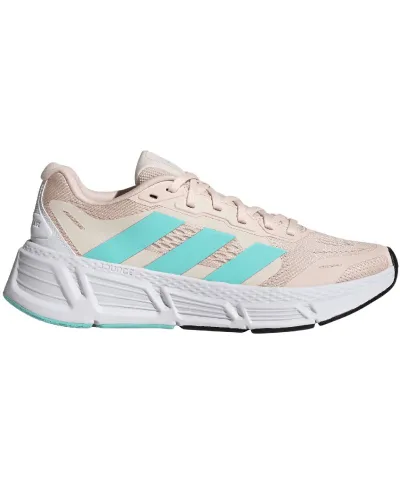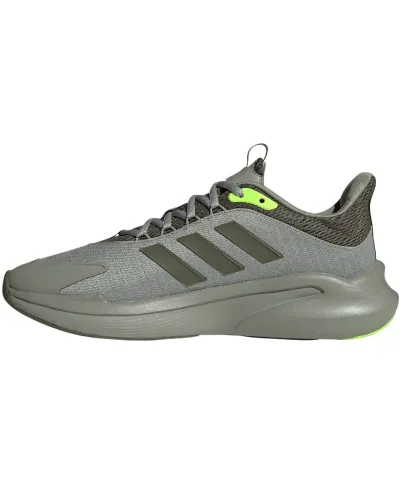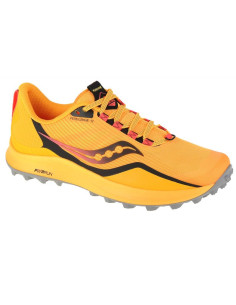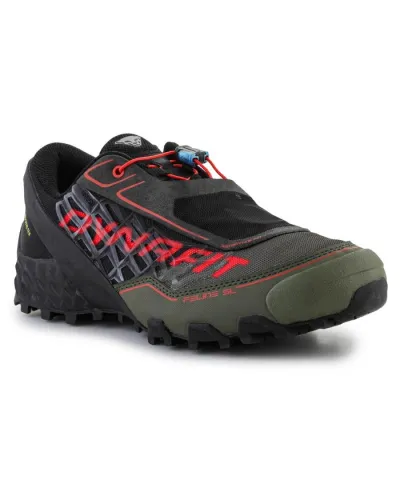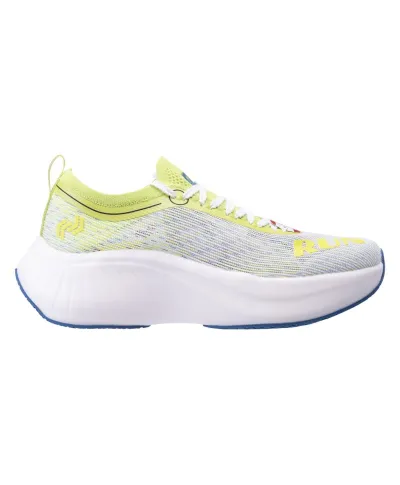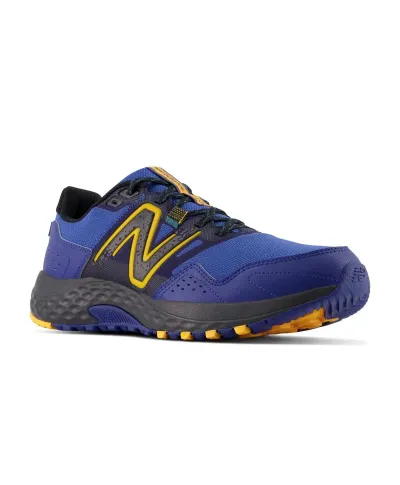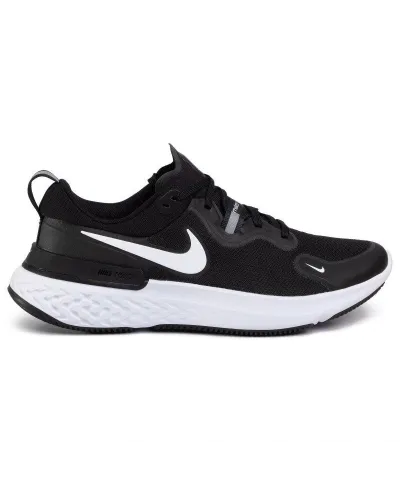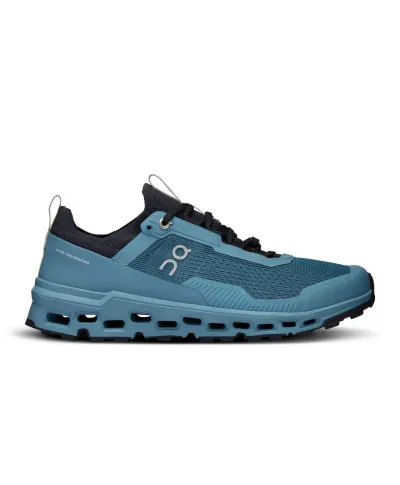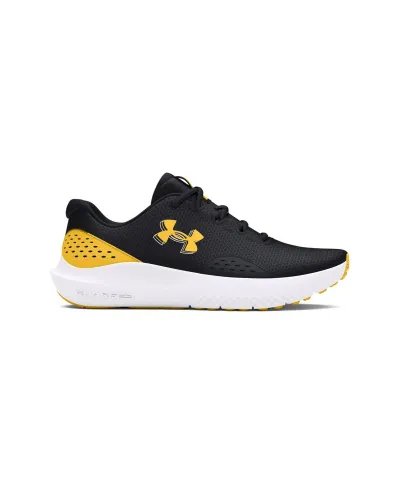1. Type of activity – running or training?
Before you decide to buy shoes, it is crucial to determine what type of activity they will be intended for. Running shoes differ from training shoes in terms of both construction and technology used.
Running shoes – are characterized by a lightweight construction, good cushioning and a flexible sole. They are mainly designed for movement in one direction (front-back), which makes them ideal for running on hard surfaces such as asphalt or a treadmill.
Training shoes – are more versatile. They provide foot stabilization during various exercises, such as jumping, squats, lifting weights or dynamic exercises. They have a stiffer sole, which allows for better energy transfer.
If you mainly train in the gym or do functional exercises, choose training shoes. On the other hand, running shoes will be ideal for running, both on asphalt and in the field.
2. What to look for when choosing running shoes?
When choosing running shoes, it is worth considering several important aspects that will affect the comfort and effectiveness of your workouts.
2.1 Cushioning
Properly selected cushioning in running shoes is crucial, especially if you run on hard surfaces. Popular brands such as Nike, adidas and Asics offer advanced cushioning technologies that protect the joints and ensure smooth movement.
Nike is famous for its Zoom Air and React technologies, which provide lightness and elasticity of the step.
Asics uses the Gel system, which perfectly cushions the impact of the foot on the ground.
adidas offers Boost technology in its models, which returns energy during running, which allows for longer and more comfortable workouts.
2.2 Fit
Well-fitting running shoes are essential. Shoes should be neither too loose nor too tight. During running, the foot swells slightly, so it is recommended to choose shoes half a size larger than you normally wear. Make sure that the toes have enough room to move freely.
2.3 Shoe weight
Lightweight shoes are best for fast runs and competitions, where every second counts. Brands such as Mizuno, On Running and Munich offer ultralight models that are ideal for dynamic training.
Mizuno uses Wave technology, which ensures lightness and stability.
On Running offers shoes with an innovative CloudTec sole, which guarantees lightness and cushioning.
Munich is a brand that is becoming increasingly popular in the running world, offering lightweight and functional footwear.
3. Trail shoes - how to choose?
If you prefer running on uneven terrain, such as forest paths, mountains or trails, you need to choose the right trail shoes. Such shoes should have an aggressive tread that will provide good grip on soft, muddy or rocky surfaces. The durability of the materials and protection against moisture and mud are also important.
Dynafit is one of the leading brands specializing in trail footwear. Their models are lightweight, but at the same time very durable, which makes them an ideal choice for running in difficult conditions.
Salomon, although not listed in the keys, also offers great solutions in the category of off-road shoes, with a sole that provides traction and stability.
Off-road shoes should also provide adequate ankle stabilization and protection against stones or other obstacles that can be encountered when running on uneven ground.
4. Choosing the right brand
Different brands offer various technologies and solutions that may suit your individual preferences. Below is a brief description of several of the most popular manufacturers:
Asics - known for advanced Gel cushioning and stabilization, ideal for runners with joint problems and for people with a tendency to pronate.
Nike - offer lightweight shoes with good cushioning, especially recommended for running on asphalt and treadmill training.
adidas - Boost technology provides excellent bounce and energy return, which makes this brand's shoes a great choice for long distances.
Dynafit - a brand specializing in off-road shoes, ideal for mountain and off-road runners. Mizuno – thanks to Wave technology, Mizuno shoes are stable and lightweight, ideal for fast runs.
Munich – a lesser-known but increasingly popular brand offering lightweight and stylish running shoes.
On Running – famous for its CloudTec technology, which combines lightweight with excellent cushioning.
Puma – a brand offering lightweight and stylish shoes, ideal for everyday training.
Reebok – specializes in crossfit training shoes, but also has good running models, such as the Floatride series.
Under Armour – the brand offers modern technologies, such as HOVR, which provides excellent cushioning and energy return.
5. What to look for when buying shoes?
When choosing running shoes, it is worth focusing on a few basic criteria:
Type of surface - do you run mainly on asphalt, a treadmill, or outdoors? Choose the right tread and cushioning based on this.
Foot structure - people with a tendency to overpronate should choose models with additional stability, while supinators need shoes with better cushioning.
Running style - do you run long distances, fast intervals, or rather recreational routes? Depending on this, choose the right model - lightweight shoes for fast runs and more cushioned for long distances.
Season - remember that in winter it is worth investing in shoes with a waterproof membrane, such as Gore-Tex, which will protect your feet from moisture.
Summary
Choosing the right shoes for running and training is crucial for the comfort and effectiveness of your training. Regardless of whether you prefer running on hard asphalt, in the forest, or intensive gym exercises, you will find suitable models in the offer of brands such as Asics, Nike, adidas, Dynafit, Mizuno, Munich, On Running, Puma, Reebok or Under Armour. Remember that well-chosen shoes are not only comfortable, but also an investment in the health of your feet and joints.

